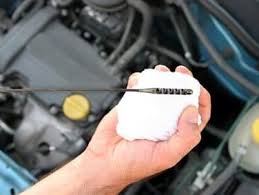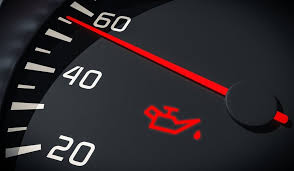Signs That Your Engine Needs an Oil Change or Maintenance
What Is Engine Oil?
Engine oil is a thick fluid that provides lubrication and cooling for your car’s engine. All auto engines need oil, but the type and weight (thickness) of that oil varies from engine to engine. It also varies by when your engine was manufactured. Newer engines have stricter requirements for fuel economy and oil consumption, and that means narrower clearances within the engine. Most modern engines use thinner oil than they would have 10, 20, or 30 years ago.
There are two primary types of engine oil – mineral oil and synthetic oil. Mineral oil is a petroleum product, derived from crude oil, just like gasoline. Synthetic oil is developed in a laboratory, instead. There are also blends that mix the two oil types together.
Generally, mineral oil is cheaper, but does not last as long. Synthetic oil is more expensive, but reduces demand for natural resources, and lasts a great deal longer (several thousand
miles in most cases).
Why Is It Important?
Engine oil is important for several reasons:
- The most important reason for engine oil is lubrication. It keeps all the moving parts protected, and prevents them from rubbing against one another. Without oil, metal-on-metal wear would destroy your engine in a very short time. Engine oil creates an atoms-thin layer between moving parts, preventing full contact and prolonging engine life.
- The second reason for engine oil to be used in your car is cooling. Most of the cooling needed is supplied by the coolant system (radiator, thermostat, water pump, etc.). However, engine oil does provide some supplemental cooling for areas of the engine where coolant cannot reach.
- Engine oil is also responsible for helping to clean the engine, removing debris like metal finings and other potentially damaging deposits.

Warning signs that you should bring your vehicle into an auto shop to refresh the oil.
- Excess Vehicle Exhaust
Modern vehicles generally do not release visible exhaust from their tailpipes, so if you see what looks like smoke trailing behind your vehicle, the change can indicate a serious issue. Commonly, excess exhaust indicates that the motor oil has become too old to function properly.
Exhaust changes can also point to engine problems like cracked gaskets, so be sure to have this symptom checked out as soon as possible.
- Falling Oil Level
Topping off your oil occasionally can help extend the period of time between oil changes. However, if your oil level seems to fall quickly and constantly, your oil system has likely developed a problem.
In this situation, you may need additional repairs on top of an oil change.
- Increased Engine Noise
Motor oil lubricates your engine so that all the parts work together smoothly. When the oil becomes thin, old, or poorly textured, you might hear the issue every time you drive.
When driving with bad oil quality, your engine may make a knocking sound while the vehicle is in motion. Oil issues can also cause other noises, like ticking, which we’ll discuss in the last section.
- Irregular Oil Texture
All oil becomes darker as it runs through engines, sometimes almost immediately, so color isn’t always a reliable indicator that you need an oil change. However, over time, oil can pick up small particles of grime that make the liquid gritty.
When you check your oil levels, check the consistency as well. If your oil seems to have a lot of grit in it, you may need to replace it.
- Low Oil Level
While you can top off between oil changes, you should pay attention to the level you find the reservoir at. If it’s been too long since your last oil change, the oil levels may read well below the minimum.
If you notice this low of an oil level, have your car serviced right away. Driving with extremely low oil levels can cause permanent engine damage and increase your risk of stalling or breaking down, especially in warm weather.

More Mileage Than Usual
If you recently returned from a long road trip or a long-distance business trip, you may need to take your car in for an oil change right away. Any time you put significantly more miles on your car than you usually would, you should anticipate needing an oil change sooner than usual as well.
Persistent Check Engine Light
The “check engine” light on your dash can come on for a number of mechanical reasons. If your car doesn’t have an oil change light or if your oil situation is extreme, this is the light you’ll see. A mechanic can read the signal of the light and help you determine if you need an oil change to resolve the issue.
Shaking While Idling
The high level of friction present in your engine when the oil needs to be changes can affect your ride quality. Specifically, when your car is idling, you may feel abnormal vibrations or shaking motions. Avoid idling as much as possible until you can have your oil changed.

How to know when to replace motor mounts
The primary purposes of an engine mount are to secure an engine into machinery and to absorb any shocks and vibrations when the machinery is operating. The anti-vibration properties of engine mounts are essential for preventing damage to the engine and for improving operator comfort (where applicable). But what happens when engine mounts need replacing? And how do you know when they need to be replaced? We answer both of these questions in this post.
What Happens if I Don’t Change my Motor Mounts?
No matter the quality of engine mounts, they begin to wear down after usage and eventually require replacement. Not replacing an engine mount that is past its prime can inflict damage to the engine, cause discomfort for operators and potentially be a safety risk if the engine isn’t secured.
How long do motor mounts last?
Usually, engine mounts should last between at least 5-7 years depending on the application, but we recommend getting them checked over regularly when the vehicle is being serviced, or when any other work is being carried out.
When to replace engine mounts
Being aware of these different signs of a worn engine mount will help you to identify when they need replacing:
- Increased Vibrations
If you start your engine and notice that it is making more of a noise than usual, and can feel more vibrations than usual, this is a key sign of a worn engine mount that may need replacing. If an engine mount is damaged, its anti-vibration properties weaken. An increase in vibrations leads to the engine making more of a sound than usual – something that can be extremely damaging to an engine if it continues for a long time.
- Rocky Start
Upon starting a machine, you may notice an excessive lurch that doesn’t feel or sound healthy. This is a common indicator of a worn or damaged engine mount. This lurch often steadies into a constant vibration, but you may then also experience a lurch when turning the ignition off.
- A Bumpier Ride
Often, an engine mount that needs replacing can cause a jolt when changing gears on an attached transmission. This jolt or thump can also be noticeable when travelling at faster speeds due to the engine working harder. If your machine doesn’t feel as smooth as usual, this can often be down to a damaged engine mount.
- Impact Noises
A worn engine mount can often lead to ‘clunks’ and ‘bangs’ within its surroundings/engine bay. This is as a result of the engine moving around more than normal and making contact with other components, which in turn can cause impact sounds that become quite noticeable.
- Visual Wear
With use, the metal part of an engine mount does change in appearance. However, if you can see any significant corrosion, cracks or warps to the part, excessive wear will likely be occurring to the rest of the mount. If you notice any cracks or flaking to the rubber aspect of an engine mount, this can potentially limit its performance depending on the severity of the cracks and the route cause. The effectiveness of engine mounts relies on their form and shape; any changes to this can be damaging to the engine. If you do notice any of these signals, you should look into replacing engine mounts as quickly as possible.
Signs Your Car’s Oil Needs Changing
Changing the oil in your car is usually a quick and painless procedure when performed at a modern automotive service center. Lubricating oil in your vehicle is something that is vitally important to its well-being. Good, clean oil improves the performance of your car and extends the life of the engine, so why do many people delay in replacing their oil until there’s a visible problem?
A lot of drivers rely solely on mileage as a gauge of when their oil needs to be replaced, but other factors come into play as well, such as the quality of the oil, the age of the car and how the car is driven. Fresh, clean oil optimizes your vehicle’s performance by lubricating parts and keeping the engine clean and healthy. However, over time, the fluid breaks down and has difficulty performing its duties. Once this begins, your car likely will exhibit at least one of the warning signs below.
- Check Engine or Oil Change Light
The most obvious alert that there’s an issue with your oil will come from the car itself. The oil change light in your vehicle will illuminate when there’s not enough oil in the system, so check the dipstick to see what’s happening. In worse cases, the check engine light will illuminate. This is your car warning you that things have gotten so bad that the engine is at risk of damage due to problem parts or lack of lubrication.
- Engine Noise and Knocking
Oil provides a protective layer between engine parts, avoiding metal-to-metal brushing and keeping the engine quiet. If your oil isn’t doing its job properly, the engine noise will increase. In severe cases, you may even hear knocking or rumbling sounds that signify your engine is tearing itself apart bit by bit through lack of lubrication.
- Dark, Dirty Oil
Clean oil is amber in color and slightly translucent. As it is used, it becomes filled with particles collected from the engine and turns darker. It will not be obvious when this begins to happen, so you must be vigilant and check your engine oil at least once a month. To do this, remove the dipstick and wipe it off before returning it to the oil tank. Now take it out a second time. If you cannot see the dipstick through the oil, it is time for an oil change.
- Oil Smell Inside the Car
If you smell oil inside the car, it can often signify an oil leak. If you also smell gas or exhaust fumes, the vehicle may be overheating. Either way, you will want to schedule maintenance immediately.
- Exhaust Smoke
Some translucent vapor will always come out of your car’s tailpipe, but if this changes to smoke, it’s time for an engine check-up. You may have faulty engine parts or an oil leak.